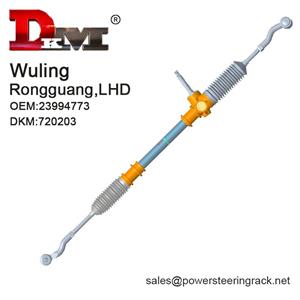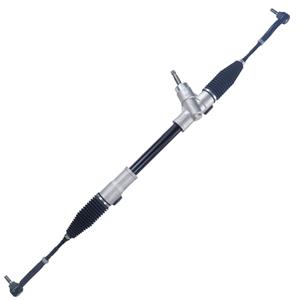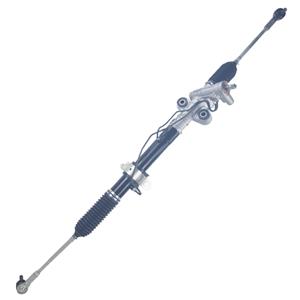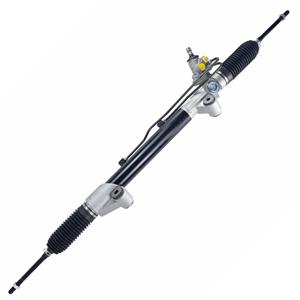-
If the hydraulic oil is not replaced or cleaned in time, it may cause wear, corrosion or blockage of components such as the steering pump and steering rack, which will affect the normal operation of the steering system. Therefore, regular replacement of hydraulic oil and cleaning of the hydraulic system have become necessary measures to ensure the efficient operation of the hydraulic power steering system.
-
Although rack-and-pinion steering systems can be used together with tilt mechanisms in theory, in practice, there are still certain design challenges. The most important point is how to ensure that the steering system's accuracy and response speed are not affected when the steering wheel angle is adjusted.
-
In other words, after the car is turned off, although the hydraulic system no longer maintains pressure, the hydraulic fluid in the system may continue to leak due to gravity or residual oil pressure. In particular, power steering fluid is more likely to leak in the following situations: 1. There is a small leak in the system 2. Leakage caused by pressure release 3. The influence of parking posture:
-
Here are some common reasons that may cause power steering whining: 1. Air entering the hydraulic system 2. Aging or damaged power steering pump 3. Loose or worn belts 4. Clogged or damaged hydraulic lines 5. Fluid deterioration or contamination 6. Wear of internal components of the steering system
-
1970s: Power steering becomes standard in cars In the 1970s, power steering racks gradually changed from an optional configuration to a standard configuration for most cars on the US market. In particular, as the size and weight of cars increased further, manual steering systems became increasingly impractical.
-
Manual steering system: no steering fluid is required. Hydraulic power steering system: steering fluid is required. The steering fluid in the hydraulic system is responsible for transmitting pressure, lubrication and heat dissipation. Electronic power steering system: no steering fluid is required.
-
If the gears inside the steering rack are worn or loose, it may make an abnormal knocking sound when the steering wheel is turned. In addition, insufficient lubrication of the steering gear may also cause this situation.
-
The Buick brand truly applied the power steering system to mass-produced models on the Buick Roadmaster launched in 1952. As the flagship model of the Buick brand at the time, Roadmaster represented Buick's highest level in the field of luxury cars.
-
When water enters the power steering system, it will have an adverse effect on various components of the system. This is because the hydraulic oil in the power steering system not only needs to play a lubricating role, but also needs to maintain the hydraulic pressure of the system and provide power assistance.
-
When the electric power steering system fails, the driver may immediately feel that the steering wheel becomes very heavy, especially when driving at low speed or parking. This phenomenon is particularly obvious.




